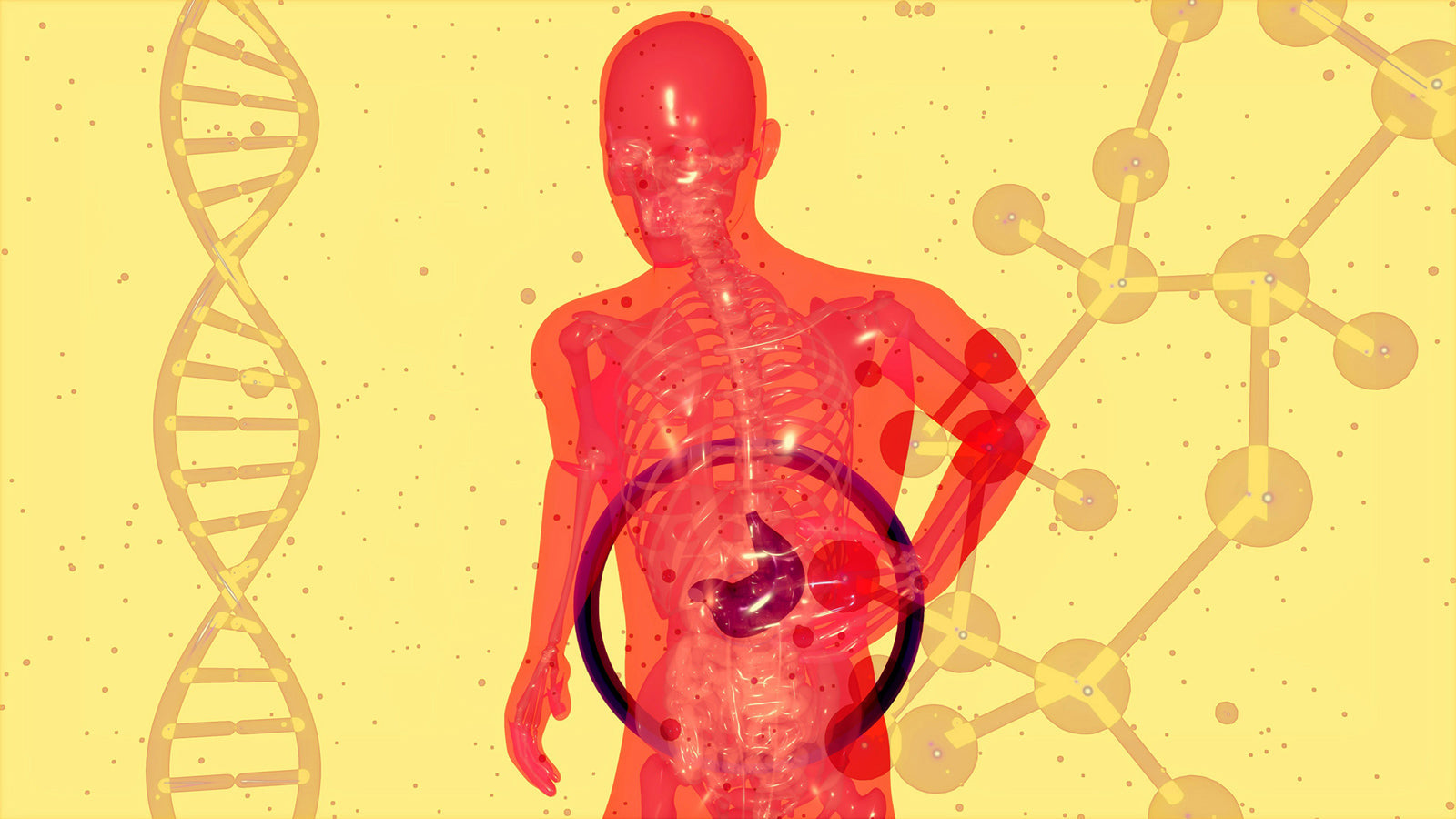The Complete Guide to Digestive Health: Signs Your Digestion Needs Support
Your digestive system works around the clock, processing everything you eat and drink while you go about your daily life. Most of the time, this complex process happens so smoothly that you barely notice it. However, when your digestive system needs support, your body has ways of letting you know.
Understanding the signs that your digestion might benefit from additional support can help you make informed decisions about your health and wellness. By recognizing these signals early, you can take proactive steps to support your digestive comfort and overall well-being.
Understanding Normal Digestive Function
Before exploring signs that your digestion might need support, it's helpful to understand what normal digestive function looks like. Your digestive system is designed to break down food into nutrients your body can absorb and use for energy, growth, and repair.
The digestive process begins in your mouth with chewing and continues through your stomach and intestines. Along the way, various organs including your liver, pancreas, and gallbladder contribute enzymes and other substances that support normal digestion.
A well-functioning digestive system typically processes food efficiently without causing significant discomfort. Normal digestion usually results in regular, comfortable bowel movements and the ability to eat a variety of foods without persistent issues.
Individual digestive patterns can vary significantly from person to person. What's normal for one person may be different for another, which is why it's important to pay attention to changes in your own digestive patterns rather than comparing yourself to others.
Common Signs Your Digestion May Need Support
Your body communicates through various signals when your digestive system might benefit from additional support. These signs can range from occasional discomfort to more persistent patterns that affect your daily life.
Occasional Bloating and Gas
Occasional bloating after meals is common and can happen to anyone. However, if you frequently experience bloating that affects your comfort or daily activities, this might indicate that your digestive system could benefit from support. Bloating can occur for various reasons, including eating too quickly, consuming certain foods, or changes in your normal digestive process.
Gas is a normal part of digestion, but excessive gas that causes discomfort or embarrassment may suggest that your system is working harder than usual to break down certain foods. This is particularly common with foods high in fiber or certain carbohydrates that can be challenging to digest.
Changes in Bowel Movement Patterns
Your bowel movement pattern is one of the most reliable indicators of digestive health. While everyone's normal pattern is different, significant changes from your usual routine may indicate that your digestive system needs attention.
Some people may notice their bowel movements becoming less regular, while others might experience changes in consistency or comfort. These changes can be temporary and related to diet, stress, or lifestyle factors, but persistent changes warrant attention from a healthcare provider.
Digestive Discomfort After Eating
Occasional mild discomfort after eating is normal, especially after large or rich meals. However, regular discomfort that interferes with your enjoyment of food or daily activities may suggest that your digestive system could benefit from support.
This discomfort might manifest as feelings of fullness that last longer than usual, stomach upset, or general digestive unease. Some people notice that certain types of foods consistently cause more discomfort than others.
Energy Changes Related to Eating
Your energy levels after eating can provide insights into how well your digestive system is functioning. While it's normal to feel slightly relaxed after a meal, persistent fatigue or energy crashes after eating might indicate that your system is working harder than usual to process food.
Some people notice that they feel more tired after certain meals or that their energy levels fluctuate significantly throughout the day in relation to their eating patterns. These observations can be helpful information to discuss with your healthcare provider.
Factors That May Impact Digestive Comfort
Several lifestyle and environmental factors can influence how comfortable your digestion feels on a day-to-day basis. Understanding these factors can help you identify potential areas where small changes might support your digestive wellness.
Eating Habits and Meal Timing
How, when, and what you eat can significantly impact your digestive comfort. Eating too quickly, skipping meals, or eating very large portions can challenge your digestive system. Similarly, eating late at night or having irregular meal times may affect how comfortable your digestion feels.
The types of foods you eat also play a role. Highly processed foods, excessive amounts of sugar or fat, or foods you're sensitive to may require more effort from your digestive system to process effectively.
Stress and Lifestyle Factors
Your mental and emotional state can significantly influence your digestive comfort. During stressful periods, many people notice changes in their digestive patterns or increased sensitivity to certain foods.
Lack of sleep, irregular schedules, and high stress levels can all impact how your digestive system functions. Your body's natural rhythms, including digestive processes, work best with consistent routines and adequate rest.
Physical Activity Levels
Regular physical activity supports many bodily functions, including digestion. Sedentary lifestyles may contribute to sluggish digestion, while appropriate levels of movement can support normal digestive function.
Even gentle activities like walking after meals can contribute to digestive comfort for many people. The key is finding a level of activity that feels good for your body and fits into your lifestyle.
Hydration Status
Adequate hydration supports normal digestive function. Your digestive system needs sufficient fluid to produce digestive juices and to help move food through your system comfortably.
However, the timing of fluid intake can also matter. Some people find that drinking large amounts of liquid with meals affects their digestive comfort, while others feel better when they maintain steady hydration throughout the day.
Age-Related Changes in Digestion
As we age, it's normal for various bodily functions to change gradually, including digestion. Understanding these natural changes can help you adjust your approach to digestive wellness throughout different life stages.
Natural Changes Over Time
Your body's production of digestive enzymes, stomach acid, and other digestive components may naturally change as you get older. This is a normal part of the aging process, but it can mean that foods you once ate without any issues might occasionally cause mild discomfort.
Many people notice that they become more sensitive to certain foods or that their digestive patterns change somewhat as they age. These changes don't necessarily indicate a problem, but they might suggest that your digestive system could benefit from additional support.
Adapting Your Approach
Recognizing that your digestive needs may change over time can help you adapt your eating habits and lifestyle choices accordingly. This might mean eating smaller, more frequent meals, chewing food more thoroughly, or being more mindful about food combinations.
Some people find that incorporating digestive support strategies becomes more beneficial as they age. This could include lifestyle modifications, dietary adjustments, or considering appropriate supplements as part of their wellness routine.
When to Seek Professional Guidance
While many digestive concerns are mild and temporary, certain situations warrant professional medical attention. It's important to know when to consult with a healthcare provider about your digestive health.
Persistent or Severe Symptoms
If you experience persistent digestive discomfort that lasts for several weeks or interferes significantly with your daily life, it's important to consult with a healthcare provider. They can help determine whether your symptoms indicate an underlying condition that needs medical attention.
Severe symptoms such as persistent pain, significant changes in bowel habits, unexplained weight loss, or other concerning signs should always be evaluated by a medical professional promptly.
Changes in Long-Standing Patterns
If you notice significant changes in digestive patterns that have been stable for years, this warrants discussion with your healthcare provider. Sudden changes in tolerance to foods you've always eaten comfortably, or new digestive symptoms that persist, should be professionally evaluated.
Impact on Quality of Life
When digestive concerns begin to affect your quality of life, social activities, or overall well-being, it's time to seek professional guidance. Your healthcare provider can help identify potential causes and suggest appropriate approaches to support your digestive comfort.
Natural Approaches to Supporting Digestive Wellness
There are many natural approaches that may support digestive comfort and overall wellness. These strategies focus on supporting your body's natural digestive processes through lifestyle and dietary choices.
Mindful Eating Practices
Taking time to eat slowly and chew thoroughly can support your body's natural digestive processes. When you eat mindfully, you give your digestive system the best opportunity to function effectively.
Creating a calm eating environment, avoiding distractions during meals, and paying attention to hunger and fullness cues can all contribute to digestive comfort. These practices help your body focus its energy on the important work of digestion.
Dietary Considerations
Including a variety of whole foods in your diet can provide the nutrients your digestive system needs to function well. Foods rich in fiber, such as fruits, vegetables, and whole grains, can support healthy digestion when introduced gradually.
Fermented foods like yogurt, kefir, sauerkraut, and kimchi contain naturally occurring beneficial bacteria that may support digestive health. However, if you're not used to these foods, it's best to introduce them slowly.
Lifestyle Support Strategies
Regular sleep patterns, stress management techniques, and appropriate physical activity can all support digestive wellness. These lifestyle factors work together to create an environment where your digestive system can function optimally.
Staying adequately hydrated throughout the day supports many bodily functions, including digestion. Finding the right balance and timing of fluid intake for your individual needs can contribute to digestive comfort.
The Role of Digestive Support Supplements
For some people, dietary supplements may provide additional support for digestive comfort as part of an overall wellness routine. Understanding how these supplements work can help you make informed decisions about whether they might be appropriate for your needs.
Types of Digestive Support Supplements
Digestive enzyme supplements contain enzymes similar to those your body produces naturally and are intended to support normal digestion when taken with meals. Probiotic supplements contain beneficial bacteria that may support digestive health as part of a balanced lifestyle.
Fiber supplements can help some people meet their daily fiber needs, which supports normal digestive function. Other supplements may contain herbs or other ingredients traditionally used to support digestive comfort.
Considerations for Supplement Use
If you're considering digestive support supplements, it's important to choose high-quality products from reputable manufacturers. Always read labels carefully and follow the recommended directions for use.
Before starting any new supplement regimen, especially if you have existing health conditions or take medications, consult with your healthcare provider. They can help you determine whether supplements might be appropriate for your individual situation.
Creating Your Personal Digestive Wellness Plan
Supporting your digestive health is a personal journey that may involve various strategies depending on your individual needs, lifestyle, and preferences. Creating a comprehensive approach can help you maintain digestive comfort over time.
Assessment and Awareness
Start by paying attention to your current digestive patterns and comfort levels. Keep a simple food and symptom diary for a week or two to identify any patterns or triggers that might be affecting your digestive wellness.
Notice how different foods, eating patterns, stress levels, and lifestyle factors seem to influence your digestive comfort. This information can be valuable for both your own understanding and for discussions with healthcare providers.
Gradual Implementation
When making changes to support your digestive health, it's generally best to implement them gradually. This allows your body to adjust and helps you identify which strategies are most beneficial for your individual needs.
Start with one or two simple changes, such as eating more slowly or adding a short walk after meals. Once these become habits, you can consider additional strategies if needed.
Monitoring and Adjusting
Your digestive needs may change over time due to various factors including age, stress levels, health status, and lifestyle changes. Regular check-ins with yourself about your digestive comfort can help you adjust your approach as needed.
Don't hesitate to modify your strategies based on what you learn about your body's responses. What works well for you now might need adjustment in the future, and that's perfectly normal.
Building Long-Term Digestive Wellness
Supporting your digestive health is an ongoing process rather than a one-time fix. Building sustainable habits and maintaining awareness of your body's signals can help you maintain digestive comfort throughout different life stages.
Consistency and Patience
Digestive wellness often improves gradually with consistent supportive practices rather than dramatic overnight changes. Be patient with yourself as you implement new strategies and give your body time to respond to positive changes.
Remember that everyone's digestive system is unique, so what works well for others might not be exactly right for you. Focus on finding the approaches that make you feel your best rather than following a one-size-fits-all approach.
Professional Partnership
Maintaining a relationship with healthcare providers who understand your health history and goals can be valuable for long-term digestive wellness. Regular check-ups provide opportunities to discuss any changes or concerns and to adjust your approach as needed.
Your healthcare team can help you navigate decisions about diet, lifestyle, supplements, and other factors that might influence your digestive health over time.
Conclusion
Your digestive system plays a crucial role in your overall health and well-being. By learning to recognize the signs that your digestion might need support, you can take proactive steps to maintain digestive comfort and support your body's natural processes.
Whether through mindful eating practices, lifestyle modifications, appropriate supplementation, or professional guidance, there are many ways to support your digestive wellness. The key is finding the right combination of strategies that work for your individual needs and lifestyle.
Remember that digestive health is connected to many aspects of your overall wellness, from energy levels to mood to immune function. By taking care of your digestive system, you're investing in your long-term health and quality of life.
Pay attention to your body's signals, be patient with the process, and don't hesitate to seek professional guidance when needed. With the right approach, you can support your digestive system in functioning comfortably and effectively for years to come.
These statements have not been evaluated by the Food and Drug Administration. This product is not intended to diagnose, treat, cure, or prevent any disease.


